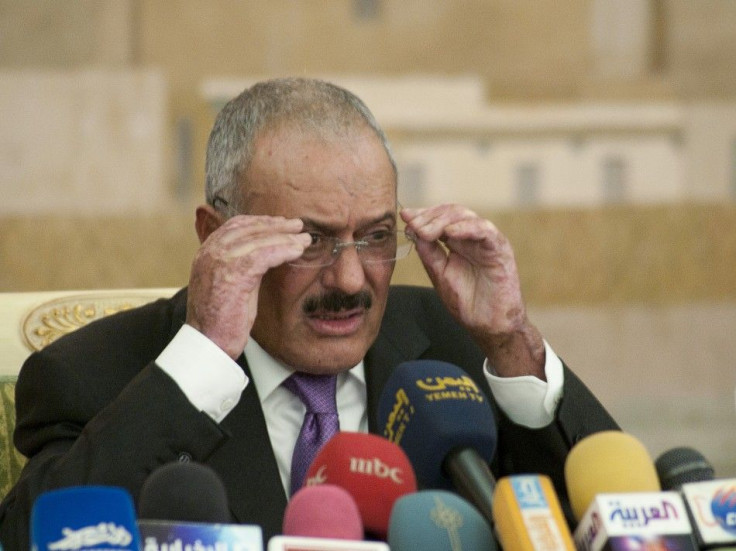U.S. Considering Medical Visit for Outgoing Yemeni President

The Obama administration is debating over whether or not they should allow Yemen's outgoing president, Ali Abdullah Saleh, to travel to the U.S. for medical treatment, a senior administration official said Monday.
The official said Saleh would receive approval to solely receive medical treatment for injuries related to an attack at his presidential compound in June. Last month, Saleh agreed to end his nearly 33-year rule amid international pressures and months of often violent protests in Yemen that have claimed the lives of hundreds of anti-regime protestors, The Wall Street Journal reported.
A dispute has broken out within the administration, however, with some officials worried about the appearance of providing asylum for a hated Arab figured charged with the deaths of anti-regime protestors, according to the New York Times. Others in the administration are concerned that Saleh is looking for a way out of his country to avoid prosecution.
If granted permission to enter, Saleh would be the first Arab leader to request, and be granted, an extended stay in the U.S. since political unrest began to take over the region a year ago.
In a somewhat similar case, more than three decades ago, President Jimmy Carter allowed the exiled Shah of Iran into the U.S. for medical treatment in October 1979.
Saleh said he only intends to go to the U.S. for a few days and he will not abandon my people and my comrades. But his visit will be contingent upon a proposed itinerary by the U.S., but it has not yet been submitted to the American Embassy in Yemen, officials said; no visa has yet been issued to Saleh.
A spokesman for President Barack Obama said John Brennan, assistant to the president for homeland security and counter-terrorism, called Yemen's vice president to discuss the outbreak in violence recently.
Mr. Brennan emphasized strongly the need for Yemeni security forces to show maximum restraint when dealing with demonstrations, and called upon all sides to refrain from provocative acts that could spur further violence, said Josh Earnest, Obama's principal deputy press secretary.
Obama was briefed on developments in Yemen while in Hawaii for Christmas.
© Copyright IBTimes 2025. All rights reserved.





















